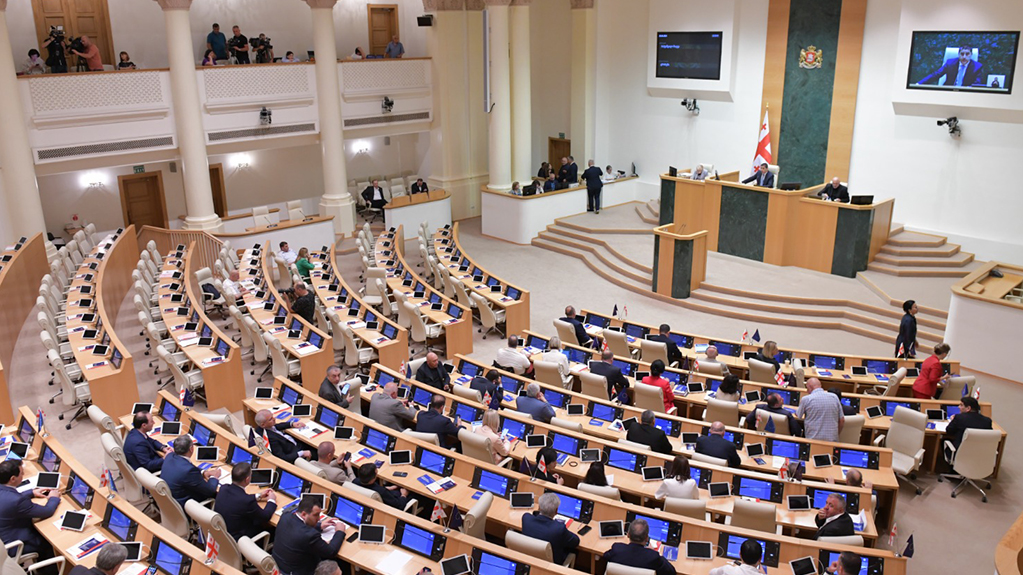The Georgia Young Lawyers Association (GYLA) explains what occurs when the legality of the election of newly elected members of parliament is challenged in the Constitutional Court.
News
The first session of the newly elected parliament is authorized to begin if at least 76 deputies are present. After the session is opened, a temporary mandate commission is established in the Parliament. During the first session, the chairman of the Central Election Commission will provide the necessary documentation to recognize the powers of the members of Parliament. The Temporary Credentials Commission will review these documents and reflect the results in a draft resolution, which will list the names of the elected deputies for the recognition of their authority.
"The document shall not include the name and surname of anyone whose election legality has been challenged in the Constitutional Court or the General Court, or whose election legality has been deemed questionable by the temporary mandate commission of the Parliament. After the final election results were summarized by the CEC, the President of Georgia filed a lawsuit with the Constitutional Court, demanding that the election results be recognized as unconstitutional. Consequently, this lawsuit challenges the legality of the election of all 150 members.
The Temporary Credentials Commission shall not include the name and surname of any elected member in the relevant resolution. In this case, the Parliament will be unable to recognize the authority of at least 100 deputies, leading to the termination of the first session of Parliament," says GYLA.
Once the issue of at least 100 deputies' authorization can be raised before Parliament, the Chairman of the CEC will convene a session of Parliament within 10 days of this event. According to GYLA, Parliament cannot recognize the powers of the elected members until the dispute in the Constitutional Court is resolved.
The Prime Minister and the leaders of Georgian Dream have announced that the 11th Parliament will meet on November 25, regardless of whether President Salome Zourabichvili convenes the session.
On November 19, the President filed a lawsuit with the Constitutional Court of Georgia, demanding that the final results be recognized as unconstitutional due to violations of the principles of universality and secrecy in elections. Thirty-four opposition MPs also filed a constitutional lawsuit. It is still unclear whether the Constitutional Court will accept the lawsuits for consideration.
On this topic:
Mdinaradze: Zourabichvili Cannot Disrupt New Parliament's Work















